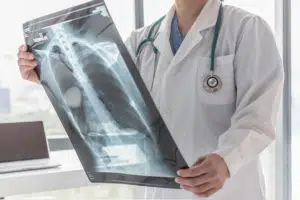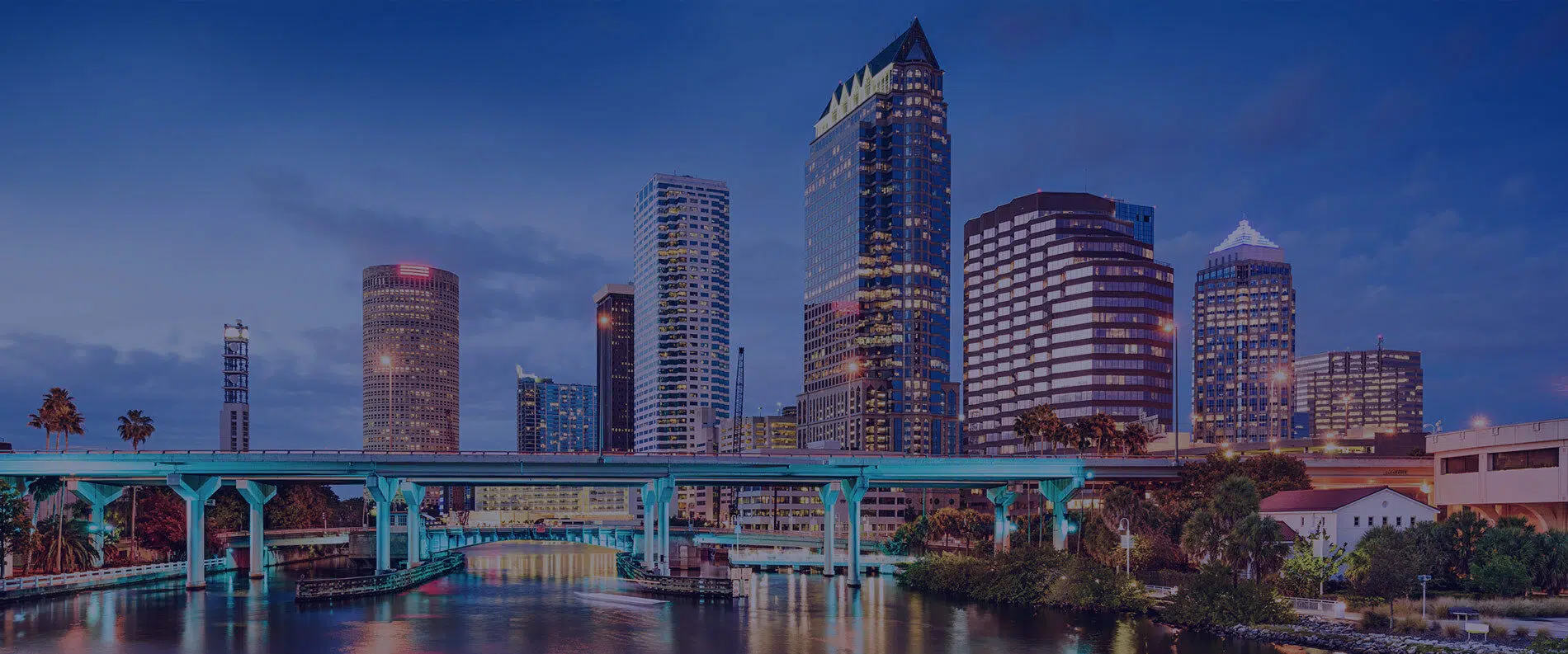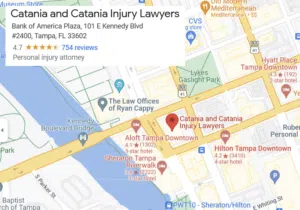
Chest injuries commonly occur in car accidents. Although seatbelts and airbags save lives, they can also injure your chest.
Chest injuries can also happen in other kinds of accidents. Workplace accidents that involve falling objects or a fall from a height can result in chest injuries. Chest injuries can also occur when a vehicle strikes a pedestrian or bicyclist.
Here are the things you should know about chest injuries and the ways that you can seek compensation for their effects.
Table of Contents
How Do Chest Injuries Happen?
Chest injuries fall into a few different categories:
Blunt Trauma
Blunt trauma occurs when an object impacts your chest without penetrating the skin. A falling object that hits your chest will often produce blunt trauma.
Blunt trauma can also result when your chest hits an object. A seatbelt during a car accident will often produce blunt trauma to the chest.
Minor blunt trauma can cause bruising. Severe trauma can fracture ribs or deform the chest enough to damage the heart or lungs.
Penetrating Trauma
Penetrating trauma happens when an object hits your chest and penetrates the skin. In addition to the effects of blunt trauma, penetrating trauma can also puncture organs, tear blood vessels, and infect the puncture wound with bacteria.
Blast Trauma
The pressure wave from an explosion can cause blunt trauma. Flying shrapnel can also cause penetrating trauma.
Additionally, the rapid change in pressure from a blast wave can stretch and compress tissue, causing organ damage or even organ rupture.
What Are the Risk Factors for Chest Injuries?
Chest injuries can happen in almost any accident. But some accidents carry an increased risk of injuring the chest.
Some examples include:
Car Accidents
A head-on collision or rear-end collision carries a high risk of chest injuries. The direction of the forces involved in these collisions will often throw you into your seatbelt and airbag. They may also cause your chest to strike the steering wheel or dashboard.
Pedestrian and Bicycle Accidents
When a car hits a pedestrian or bicyclist, the vehicle could strike the accident victim in the chest. If the initial impact of the pedestrian accident or bicycle accident does not cause a chest injury, the subsequent impact on the pavement could cause injury.
Workplace Accidents
The workplace can expose you to many hazards that can produce a chest injury. Falling objects and collapsing structures can impact your chest. Falls from ladders, rooftops, or other high locations can result in a chest injury when you hit the ground.
What Are the Effects of Chest Injuries?
Chest injuries range from minor bruises to life-threatening damage to the heart or lungs. Penetrating injuries usually cause more damage to the chest than blunt or blast trauma. But any kind of chest injury can lead to death or serious injury because of the critical organs that sit in the chest.
Some effects of chest injuries include:
Bruises
Almost all chest injuries cause bruises. The ribs lay near the chest surface, so any impact could result in blood vessels rupturing between the object and the ribs.
Fractured Bones
The ribs protect the organs and major blood vessels in the chest. An impact can fracture ribs or the sternum in the middle of the chest. Rib and sternum fractures produce a lot of pain, but they also create the risk that the fractured bone could penetrate an organ or blood vessel in the chest.
Flail Chest
Flail chest occurs when multiple ribs suffer fractures. The segments that result from the fractures create a section of the rib cage that detaches from the chest muscles that control breathing. The detached segment moves in the opposite direction of the rest of the chest during breathing.
A flail chest can result in respiratory difficulties. Surgery may be required to repair it.
Ruptured Aorta
The aorta carries all of the blood in the body to the heart. When the aorta ruptures, the patient could bleed to death in a matter of minutes without emergency surgery.
Cardiac Tamponade
A membrane surrounds the heart. Normally, this pericardial sac protects the heart. But internal bleeding can cause the pericardial sac to fill with blood. The pressure of the blood surrounding the heart can cause it to stop beating.
Pneumothorax
Penetrating trauma can puncture the airtight chamber that surrounds each lung. The pressure of the air that floods into the chest can cause the lung to collapse. The patient’s breathing will then become compromised. Death can result if doctors cannot re-inflate the lung.
How Are Chest Injuries Treated?
Treatment for a chest injury depends on the effects that have resulted from the trauma.
But generally, first responders and doctors focus on three products of chest trauma:
- Heart function
- Respiration
- Bleeding
In the case of blunt trauma, first responders will check for breathing and provide oxygen if necessary. They will also monitor the patient’s heartbeat.
In the case of penetrating trauma, first responders will usually bind the object that penetrated the chest instead of removing it. Removing the object can cause internal bleeding and damage organs as it is removed.
Once the patient reaches the emergency room, doctors will continue respiratory support and monitor the patient for heart problems or signs of internal bleeding. In some cases, doctors may perform surgery to repair the damage caused by the trauma.
What Compensation Can I Recover for Chest Injuries?
The damages awarded for chest injuries should include compensation for past and future medical expenses, lost income, diminished earning capacity, and pain and suffering.
Damages might also include the costs of medical treatment and any subsequent physical therapy that may be necessary.
When a chest injury causes death, Florida’s wrongful death statute allows the survivors and estate to recover lost financial support from the decedent. The estate can also recover the cost of medical bills and funeral expenses.
You only have a limited amount of time to file your personal injury claim under Florida’s statute of limitations.
Contact a Tampa Personal Injury Lawyer for A Free Consultation

If you’ve been injured due to someone else’s negligence, you shouldn’t have to fight on your own. You may be eligible to receive compensation for your injuries.
Contact Catania and Catania Injury Lawyers for more information about the compensation you may seek for a chest injury. Call us at (813) 222-8656 or contact our law offices online, our Tampa personal injury lawyers provide a free case review and discuss your legal options for an injury claim.




